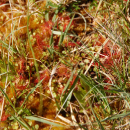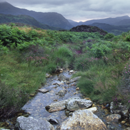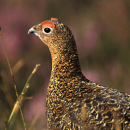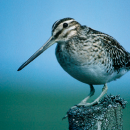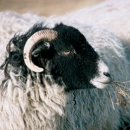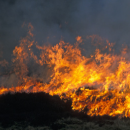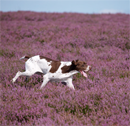5th August 2015
Natural England press release:
FIGURES from the 2015 hen harrier breeding season show it is on track to be the most successful year since 2010.
Despite poor weather throughout the breeding season, there are six successful harrier nests fledging 18 new chicks. An additional seventh nest – which was close to fledging young – unfortunately failed late in the season, due to natural causes.
Hen harriers remain the most endangered breeding birds in England. News of this year’s successful nests follows the disappearance of five male hen harriers, which resulted in the failure of their nests.
Rob Cooke, Natural England’s Director of Terrestrial Biodiversity, said: “Six nests is a small number, but it is actually more than we have seen in total over the past three years – which is a significant and positive step forward. Obviously we need to see many more pairs of these iconic birds nesting successfully and we are actively looking at how we and our partners can build on this positive outcome in the future.”
The nests range across the north of England, in Northumberland, Lancashire, County Durham and two in north western England. Dedicated staff from Natural England, Forestry Commission, RSPB and the Moorland Association have worked tirelessly with volunteer raptor workers, landowners and their staff to help bring about these results.
Chairman of the Moorland Association, Robert Benson, said: “Grouse moor managers have played a significant role in protecting nests and this year’s success, which is very welcome. However, we need to do more for hen harriers. With government help, via a Hen Harrier Action Plan, numbers and the spread of nests next year could be even better, buffering the effects of poor weather and predation.”
Fledged chicks are being fitted with satellite tags by the RSPB EU funded Hen harrier LIFE+ Project and by Natural England, and their progress closely monitored. Satellite tag technology is improving rapidly and these latest tags will provide even more detailed information on how birds move around the landscape and the factors which currently limit the population.
RSPB Board spokesman Stuart Housden said: “Whilst we’re very pleased some hen harrier chicks have fledged successfully this year, we must recognise there remains a long way to go to secure the species’ future as a breeding species in England. Harriers are still absent from vast swathes of suitable habitat, and are highly vulnerable to illegal persecution.Until this is addressed there is little prospect of a sustainable population in England’s Uplands.”
Tom Dearnley, Forestry Commission Ecologist, said: “We are thrilledthere have been two successful hen harrier nests in Northumberland. We hope that this will mean many more successful years for breeding hen harriers on land the Forestry Commission manages. This success highlights the habitat value to the species.”
Number of successful nests since 2010:
| Successful nests | Chicks fledged | |
| 2015 | 6 | 18 |
| 2014 | 4 | 16 |
| 2013 | 0 | 0 |
| 2012 | 1 | 4 |
| 2011 | 4 | 12 |
| 2010 | 6 | 18 |


